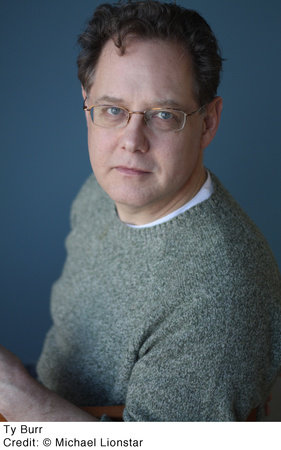The impact of the pandemic on movies: What will be the new normal?
November 5, 2020
by Marilyn Brooks
 “Do the movies have a future?” was the opening question in Ty Burr’s Oct. 30 presentation for BOLLI’s Lunch and Learn program, and his answer was both yes and no. Ty, an area native who grew up in Brookline, has been the film critic at the Boston Globe since 2002. In addition, he has written a weekly Sunday column for the paper on various popular culture subjects since 2015, and has written or contributed to five books on films and film criticism.
“Do the movies have a future?” was the opening question in Ty Burr’s Oct. 30 presentation for BOLLI’s Lunch and Learn program, and his answer was both yes and no. Ty, an area native who grew up in Brookline, has been the film critic at the Boston Globe since 2002. In addition, he has written a weekly Sunday column for the paper on various popular culture subjects since 2015, and has written or contributed to five books on films and film criticism.
“We can’t do now what we’ve always done,” he noted, meaning going to a theater, eating popcorn, and discussing the film with friends afterwards. But, he said, “I think it’s a primal need to gather together” in such venues, and he was optimistic that one way or another we will be able to do so in the future.
Ty said that Videos on Demand, or VOD, is “where my entertainment money goes now.” Amazon Prime and Netflix have become the leaders in this category, since they have the money to buy the best films already produced and the money to bankroll new ones.
“Movie theaters are taking a back seat to streaming,” and new releases can go straight to VOD. That brings up the question of the definition of a movie, since the boundaries between the various genres are blurring. Is it a television show or a movie, a feature film or a short, a fictionalized story or a documentary? “We are living in a time of media flux,” Ty emphasized. While these questions might have been asked even before the pandemic struck, they seem particularly relevant under the present circumstances.
He also noted that streaming is broadening the audience base, and that communities not in metropolitan areas or near independent theaters now have the opportunity to see films that may not have been readily available to them before.
The pandemic has given viewers an “enforced vacation from blockbusters,” and now is thus an “interesting and vibrant time for independent movies.” Ty believes this means that smaller, independent theaters will have a better chance to survive than chains. One reason for this might be that since the studios are not producing or distributing “blockbusters” until they can be shown in large chains, the movie audience will gravitate to small theaters able to show their usual fare of independent films. Because the independent theaters already have a relationship with independent film distributors, they may be able to get the best films available.
To whet our appetites, the audience was shown trailers for three upcoming films—“Ma Rainey’s Black Bottom,” a Netflix film about the African-American blues singer, starring Viola Davis; “The Father,” a theatrical release starring Anthony Hopkins about an elderly man with dementia; and “One Night in Miami,” an Amazon release of a fictional account of a night when Muhammad Ali, Malcolm X, Sam Cooke, and Jim Brown gathered to discuss their roles in the civil rights movement and cultural upheaval of the 60s. And to keep us all occupied until a return to normalcy, he promised to send a list of his favorite films for at-home viewing to the BOLLI office for distribution to interested members.
It’s easy to understand why Ty Burr has spoken at BOLLI previously and why he will be invited again. His love and knowledge of films resulted in a most enjoyable experience for the more than 150 members of his Zoom audience.